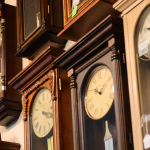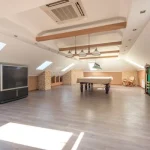Antique grandfather clocks are more than just timekeeping devices. They are pieces of history, often passed down through generations, and can be a beautiful centerpiece in any home. However, owning an antique clock is not just about admiring its beauty.
It also means taking proper care of it to ensure it works perfectly for years to come. One of the best ways to do this is through routine servicing. Regular maintenance can keep the clock running smoothly, protect its value, and prevent costly repairs in the future.
Also to see : Ultimate loft conversions guide: transform your space in 2025
Maintaining Accurate Timekeeping
Antique grandfather clocks are known for their mechanical movements, which require precise adjustments to keep accurate time. Over time, dust, dirt, and minor mechanical issues can cause the clock to run too fast or too slow.
Additional reading : How to Optimize Your Personal Finance Management with UK Fintech Apps?
Routine servicing ensures that these problems are fixed before they become serious. A professional clock technician can clean the gears, adjust the pendulum, and make sure all parts are working correctly. This not only helps the clock maintain accurate time but also reduces the stress on its internal components.
Preventing Major Damage
Like any other mechanical device, an antique grandfather clock can suffer from wear and tear. Small problems like a loose gear or a slightly misaligned pendulum can turn into major issues if left unchecked. Routine Antique Grandfather Clock Servicing allows a professional to spot and fix these problems early.
For instance, if the clock’s oil dries out, the moving parts can grind against each other, leading to expensive damage. Regular maintenance prevents this by ensuring that all parts are properly lubricated and working in harmony.
Protecting the Clock’s Value
Antique grandfather clocks are valuable collectibles, but their value can decrease if they are not well-maintained. A clock with missing or damaged parts is worth much less than one that is in excellent condition.
Routine servicing helps keep the clock in its original state, preserving its value for future generations. When a professional clock technician works on the clock, they use the right tools and techniques to avoid causing any damage.
Enhancing Aesthetic Appearance
Antique grandfather clocks are not just timekeepers; they are also decorative pieces. Over time, dust, dirt, and grime can build up on the clock’s exterior, making it look dull. Routine servicing includes cleaning the clock’s case, face, and glass, restoring its original shine.
For wooden clocks, this may also involve polishing or treating the wood to prevent damage from humidity or insects. A well-maintained clock not only works better but also looks more beautiful, enhancing the overall appearance of your home.
Ensuring Safety
An antique grandfather clock is a heavy, mechanical device with many moving parts. If it is not properly maintained, it can become a safety hazard. For example, a poorly balanced clock can tip over, or a malfunctioning gear can cause the pendulum to swing unpredictably.
Routine servicing ensures that all parts are secure and functioning properly, reducing the risk of accidents. It also ensures that the clock is securely attached to the wall or floor, providing extra stability.
Conclusion
Routine servicing is essential for maintaining the beauty, value, and functionality of an antique grandfather clock. It helps keep the clock running accurately, prevents major damage, protects its value, enhances its appearance, and ensures safety.
If you own an antique grandfather clock, investing in regular maintenance is a smart decision that will allow you to enjoy it for many years.











